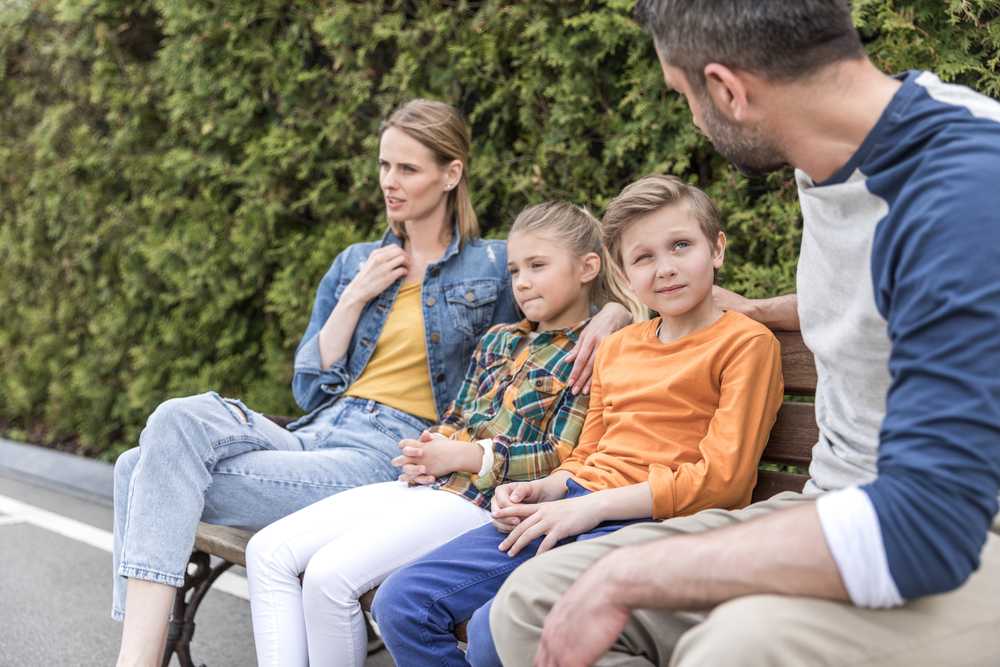
Ways to talk with children about what happened at the 4th of July parade in Highland Park, IL
Mobile Therapy Centers is grieving with the Highland Park, IL community and families devastated by the senseless act that took place on the 4th of July. Our sympathies are with the injured, deceased, and survivors who were impacted by this tragedy.

Monitor your own reactions to these events and keep in mind how closely children pay attention to adult verbal and non-verbal cues for a sense of security.
Tragic events such as the recent mass shootings bring forth many emotions—sadness, grief, helplessness, confusion, anxiety, fear, and anger. Children who are struggling with their mental health and thoughts and emotions about the shooting may turn to their trusted adults for support. There are steps adults can take to help children process traumatic events:
Start the conversation and invite children to share their thoughts and ask questions. Answer questions as directly as possible, in age-appropriate language, as people are better able to cope with difficult situations when they have facts about it. Every child has a unique reaction depending on their personality and development. Some children may want to talk extensively about the tragedy, while others may not. It is important your child knows they have ongoing support as they process and cope with the range of emotions that arise. Avoiding the conversation can make the event seem more fearful or intimidating from your child’s perspective. If your child has access to social media, it is likely they have heard about the shooting. Listen carefully to your children, clarify information if necessary and make a plan for mental health support if you or your child is concerned for their wellbeing. Discuss community support for the victims and their families.
Talk to children about safety plans. This is a time to review plans your family has created to keep everyone safe in the event of a crisis situation. Talk to children about plans you have at work, or they have at school to keep them safe.
Practice mindfulness around media consumption and make sure children are not exposed to tragic coverage including graphic images, sounds of shooting, or violent content. Children process traumatic information in different ways than adults and may be more likely to personalize fears. Even if children appear to be preoccupied, they are often aware of what adults are watching or listening to in the background. Extensive exposure to media coverage of traumatic events can cause increased stress for adults, too.

Notice behavior change that may be signs that your child is having difficulty coping with their emotions. For young children this may look like increased anxiety about separation from caregivers, life skill regression (bed wetting, dressing), hyperactivity, distractibility or anger. Older children may demonstrate increased isolation, withdrawn demeanor, apathy or disinterest in typical activities or friendships, change in sleep or appetite routines. If these reactions begin to impair their functioning, contact mental health professionals who have expertise in trauma treatment.
Model positive coping for your child. You may express difficult emotions and it is important to also highlight ideas for coping with difficult situations like this tragedy. Discuss the support by law enforcement, medical personnel, and courage of ordinary citizens to help the victims. This perspective can help your child/teen see that there can be good acts of service and community, even in the midst of such a tragic event.
Be patient with your child and yourself during this time. It is common to experience difficulty with behaviors, concentration and attention during times of stress. Children may need extra support coping in healthy ways and identifying their needs.
Mobile Therapy Centers of Illinois has some immediate Counseling availability in Libertyville. MTC also offers Telehealth options for Counseling. For a free consultation call 847-816-7200 or visit www.mtcus.com.
Mobile Therapy Centers is a Multidisciplinary Therapy Group specializing in ABA Therapy for Autism, Speech Therapy, Occupational Therapy, Behavioral Therapy, Feeding Therapy and Counseling. We see children at our clinics in Illinois and Tennessee, at your home or at your child’s school/daycare making it convenient for you and your family. Telehealth is also available.
*Some Information obtained from: Talking to Children about the Shooting National Child Traumatic Stress Network www.NCTSN.org
SCHEDULE SERVICES AT MOBILE THERAPY CENTERS OF AMERICA
If you have any questions regarding our services, please call us at 800-977-9072 to schedule a FREE consultation/screening